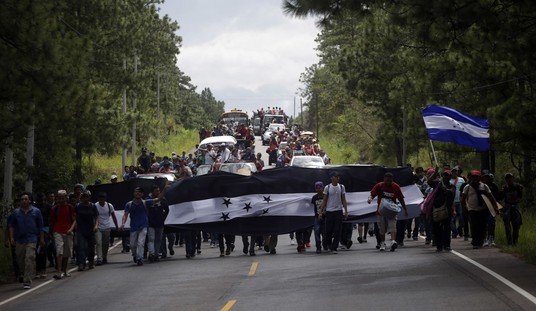Retired neurosurgeon Ben Carson is a unique figure in American politics. He was drafted by some influential conservative fundraisers to run for president, and his grassroots movement was not of his own creation and long predated his campaign. These are things to keep in mind when considering why Carson has resolutely remained in the presidential race.
After failing to break the top three in Iowa and New Hampshire, and following his devastating last place in the evangelical-majority South Carolina primary, the good doctor has confirmed that he will not drop out. Poor results in Nevada Tuesday appear unlikely to alter this resolve.
Carson is a true believer—his grassroots support got him into the race, and presumably only the failure of his grassroots support can push him out. But there’s another reason this campaign isn’t over yet. The leaders of Carson’s campaign and super PAC are savvy political operators, and they may be using the good doctor to develop their own long-term political organization.
The National Committee to Draft Ben Carson
PJ Media spoke with Bill Saracino, the director of The 2016 Committee, the super PAC which convinced Ben Carson to run for president. With Carson, Saracino declared that “we turned the normal process on its head.”
Saracino recalled watching Carson’s 2013 speech at the National Prayer Breakfast, when Carson “tore the bark off of Obamacare…with Obama sitting two seats away. My immediate reaction was ‘this guy should run for the Senate,’ but there’s no point in a Republican running for Senate in Maryland.”
Saracino got together with Bruce Eberle, founder and president of the direct mail fundraising group Eberle Associates, and John Philip Susa IV, great grandson of the famous musician. The three decided to do a test mailing, to see if there would be any support for a national campaign to elect Ben Carson to the presidency.
The results, Saracino tells, were astronomical. “Bruce had never seen any response like this, with the exception of when Ronald Reagan was running for president.” Following the stellar results, Saracino and his associates formed the National Committee to Draft Ben Carson for President in August 2013.
Between 2013 and 2015, their organization acquired 150,000 petition signatures to convince Carson to run. They also identified 35,000 – 37,000 supporters who were willing to volunteer.
This was truly a national effort, to hear Saracino tell it. “We have organizations in all fifty states, but the organization in states that vote in May and June—for instance—does not get the same attention” in the press.
An Unusually Grassroots-Oriented Political Action Committee
Following the 2010 Supreme Court decision in Citizens United v. Federal Election Commission, which allowed independent groups to spend money advocating political causes and candidates in elections, political action committees (PACs) have formed for that exact purpose. Usually, Saracino explained, such organizations “get a small group of people together and write six- or seven-figure checks.”
The Carson PAC, however, did not have that option, he explained. “We have received donations from about 160,000 people—over $20 million. The average contribution is $67, $68, $69,” Saracino noted. One big advantage of this broad fundraising base “is that those people can be asked to do political footwork and become volunteers.”
Saracino attributed Carson’s campaign success to this grassroots army. Carson “finished fourth in Iowa and what’s not noted is that he finished ahead of three governors who are supposed to be much better funded and better organized—Christie, Kasich, and Bush,” he said.
“This is certainly the most unusual presidential cycle in my lifetime,” Saracino said. He predicted that there would be no nominee until the July convention in Cleveland, Ohio. “It is dawning once again on Republican voters that everybody is throwing big handfuls of manure at everybody else, except for Ben Carson and [Ohio Governor] John Kasich.”
“He’s in this for the long haul, and presuming nobody goes into the convention with a majority—you never know.”
An Alternate Version of Events
Saracino’s moving tale of drafting a presidential candidate and turning “the normal process on its head” tells only one side of the Carson campaign story, however. Since October, skeptical media outlets have questioned whether the good doctor’s campaign is little more than “one big con,” aimed at enriching conservative fundraisers.
Politico focused on Mike Murray, a senior advisor to the Carson campaign who does not accept a salary, but who has close connections to the companies with which the campaign works. As Katie Glueck and Kyle Cheney noted in October,
Carson paid more than $1.3 million to TMA Direct, where Murray is CEO, and another $75,000 to Precision Data Management, where Murray is managing partner. Carson forked over more than $4 million for database services, web fundraising and postage to Ohio-based Eleventy Marketing, a company that lists TMA as a client. And Carson and Murray paid a July visit to an Akron-based telemarketing company [Infocision] whose call center raises money for Carson’s campaign and a conservative political action committee that Murray runs.
Glueck and Cheney added that Carson “is spending 55 cents of every dollar he raises on payments to fundraising-related companies and consultants.” Politico reporters explain that “millions in payments to companies that compile and maintain donor lists make some question whether Carson’s vendors aren’t just spending big to win, but also using his lucrative brand to build a longer-term conservative infrastructure [emphasis added].”
Recent reports show that in January of this year, Carson’s fundraising dropped while Texas Senator Ted Cruz’s campaign reaped twice as much as the good doctor’s political operation. After raising $54.1 million over the course of the race, Cruz’s campaign still has $13.5 million to spend. Carson’s operation, however, raised $57 million and only has $4.1 million left.
While former Florida Governor Jeb Bush’s campaign raised nearly as much money as Carson’s, the Jeb! team spent much of his money on ads, consulting, and payroll. Glueck and Cheney added that “Carson’s reliance on political consulting via LLCs [private companies outside the campaign] for jobs normally done by paid staff contrasts with other grassroots-focused campaigns, including Bernie Sanders and Ted Cruz.”
What This Really Looks Like
The Week’s Paul Waldman argued that “the inner workings of [Carson’s] campaign look awfully familiar to those who understand how one right-wing movement has been bilking gullible conservatives over the last half-century.” Waldman alleged that Carson’s campaign is a confidence game, where fundraisers prop up an inspiring candidate, use him to raise money, and pocket the funds themselves.
This is a particularly unfair characterization of events at Carson, Inc. While the campaign does have numerous ties to Mike Murray’s organizations, and outsources more work to private companies than is usual, its fundraising pattern is not that of a pyramid scheme, but that of a non-profit just getting started.
When fundraisers form a nonprofit, they invest heavily in fundraising. Direct mail, while it seems old fashioned to many, is still the most effective way of connecting with potential donors and starting relationships that will end up reaping checks in the five- or six-figure range. Make no mistake, direct mail programs are extremely expensive, and when searching for new donors, they tend to lose money, rather than making it.
But the small donations which a nonprofit receives from new donors are less about the money, and more about the potential relationships. In the long term, these efforts pay off, as the organization thanks its donors and builds a relationship.
When Carson’s campaign invests almost half of its money in fundraising, they are not throwing that money down the drain—they are using it to find new donors and to build potentially long-term relationships.
This is not the typical practice of campaigns, however. Campaigns are short-term projects, and donors can only give a limited amount to them. It typically makes more sense for campaigns to target previous donors and likely donors with phone calls and quick appeals, rather than longer term mail pieces directed to a broad base of potential donors.
Carson’s fundraising strategy, in other words, seems to belong more to a new nonprofit than a fast-paced campaign. This means that the political strategists who make the top decisions may be more interested in preparing the groundwork for a long operation than in getting Carson elected in November.
When former Pennsylvania Senator Rick Santorum lost in 2012, he founded the organization “Patriot Voices” to advocate his values in the public square. This may or may not have been the first step to his 2016 campaign, but it certainly served as a haven for Santorum supporters to continue their work after their candidate lost. This is not necessarily politicos taking advantage of donors, especially when such organizations do advocate for the causes that donors believe in. But it can look shady to journalists like Waldman.
Ben Carson’s campaign may be on its last legs for this election. The good doctor is in last place in the RealClearPolitics polling average, and he has the fewest delegates of any candidate remaining in the race. Nevertheless, his campaign continues. Is it to satisfy the grassroots or to help fundraisers develop a long-term political operation? These two explanations may not be as self-contradictory as they seem.









Join the conversation as a VIP Member